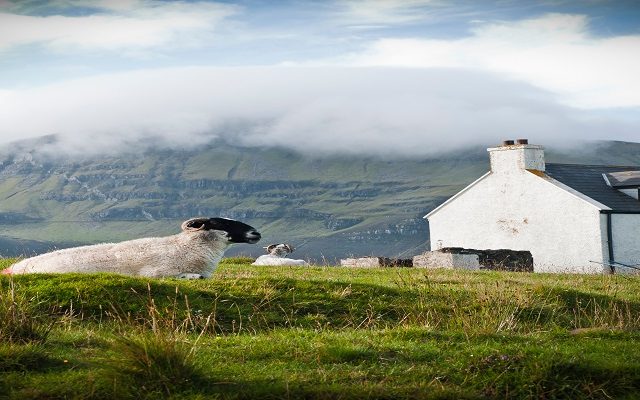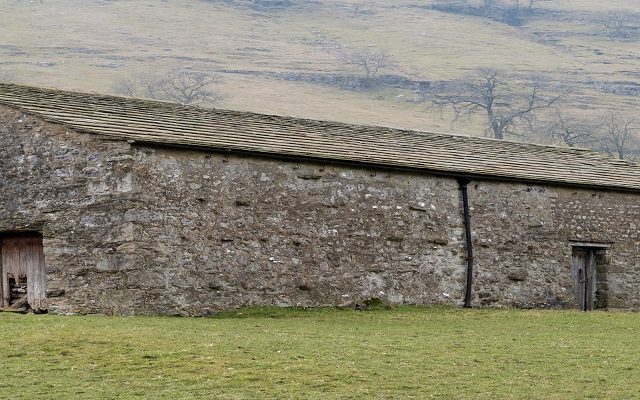Land Business | A changing landscape: Do we need a radical rethink of how estates are run?
The rural sector is facing an era of upheaval as Brexit looms. Could a radical rethink of how estates are run be the key to navigating this disruption and securing a prosperous future? Strutt & Parker’s Nicholas Watson, Ross Houlden and Jason Beedell think so.
As policymakers continue to debate the shape of UK life outside the European Union, for the country’s rural estates there is one certainty: change is on its way. Brexit may promise the largest shake-up of domestic farm policy in a generation, but, for landowners, the need to react and adapt will not end there.
In recent years, the country has seen rapid changes in communications, land use and the ways we shop, live and work. All these factors combined have profound implications for the future of rural estates.
What society demands of land and the rural environment has changed significantly over the past couple of decades. Today, rural businesses are expected to contribute to wildlife diversity, help reduce climate change by storing more carbon, reduce flood risk for town and country dwellers, improve air quality, encourage tourism and recreation, and allow open access. The government has already responded to public concerns and said that post-Brexit farm subsidies will prioritise natural capital at least as much as food production.
Expectations of the countryside as a place to live and work are changing, too. Rural tenants – both residential and commercial – demand ever better properties with fast and reliable broadband and mobile connectivity.
Unlocking potential
Given the shifting political and social landscape, landowners must cast a critical eye over their rural businesses’ contribution to their community and to the nation, asking themselves whether they offer what the market wants, and whether they need to change the way they operate.
First, consider the role of the rural estate in modern Britain. What other type of business has the same potential to contribute so much to the nation – financially, socially and environmentally?
Landowners have the unique ability to transform how their local communities live, work and feel. They think and plan long term. They are responsible for providing housing and workspaces, often in locations ignored by the public sector. They look after the ‘social machinery’ that creates communities, such as village halls, shops and pubs. And they manage the local environment’s wildlife, diversity, landscapes and heritage.
The challenge for estates is to realise their potential in this changing world. Could more ambitious estate planning, measurement and monitoring help transform economic, social and environmental performance? And could this help to finally shake off any public misconceptions that estates are wealthy and elitist?
Traditionally, an estate has been viewed as a group of different enterprises – agriculture, residential and commercial property, forestry and other diversified operations. Principals would think about how the income and costs of these different enterprises might change over the next five to 10 years, and see how this fitted in with their overarching strategy. Estates might consider ‘rebalancing’ the sources of income (often becoming more reliant on commercial property or trading enterprises). They would probably measure success against straightforward criteria, such as rent increases, voids and arrears, or overdue lease expiries.
This way of working only scratches the surface of what an estate is all about. For example, a succession of short-term lettings of land may maximise rental income, but at what cost to the soil structure, fertility and infrastructure of the land?
By widening their approach to think in detail about what the local community and area need to thrive, estates can create more opportunities, more coherence and a broader base for success and fulfilment. At its simplest, landowners who provide enough good-quality places to live, work and play – for all sectors of society – will thrive in this climate of change.
To achieve this, understanding local demographics is key. Who lives and works on and around the estate? What are their experiences? By knowing the answers to such questions, landowners can better identify the current and future needs for housing and business premises that the estate can satisfy – for its own benefit and that of the local community. Being armed with this information also makes it easier for local authorities to agree to any estate development proposals.
Video: Charlotte Kershaw on the future of the rural estate
Nation building
A deeper understanding of the estate economy is of paramount importance, too – and attaining this demands a smarter, fundamentally different approach. Instead of looking at the individual elements that make up an estate, landowners should equate its economy to that of a small nation.
For example, understanding the value of all the outputs across let and in-hand operations, and of everything that is consumed on the estate, will establish its gross domestic product. The analogy could be extended by thinking about what the estate produces and where it is consumed. There may be scope to sell more, or produce different goods, to meet local demand and improve the balance of payments.
Many countries are thinking deeply about the economic, social and environmental cost of growth and how it affects the long-term balance sheet. This is one of the underlying reasons for the current interest in natural capital, and the worry that it is being eroded in ways that are unsustainable and damaging to future economic growth. Similarly, estates need to aim for long-term sustainability without eroding their economic, social or environmental balance sheets – which is not easy, given that improving productivity remains a challenge, particularly in the rural economy.
A key consideration for estates is the balance of payments – the value of its imports and exports. How much is spent by an estate’s residents and businesses and how much of this leaves its confines to pay for ‘imported’ goods and services? Could the estate retain this money by meeting this demand itself?
Spotting opportunities
Many estates now supply essential services such as energy or broadband – with the potential to do a great deal more. Take, for example, the working, shopping and living patterns of millennials. They are environmentally conscious; they may want to work from home or a workspace rather than commute to an office; they shop online or locally; and they enjoy their leisure time and spend their disposable income on experiences rather than consumer goods.
For this cohort, there may be an unmet demand for locally produced food; business space or serviced offices; secure drop-off points for items purchased online; leisure and recreational facilities – whether formal or informal; or even electric car charging points. Such services could attract and retain residents, help to stem the migration of the younger generation from rural areas, and foster a sense of community by re-establishing local shops and amenities.
In addition, most businesses on an estate will buy the services they need individually rather than collectively. To make use of possible economies of scale, estates could move from thinking about ‘service charges’ to ‘charges for services’ for commercial tenants. There may be scope to offer shared IT support, telephone and receptionist services, group buying for electricity or stationery, or even courier, car valeting or catering services.
Providing these shared ‘public services’ would reduce costs for businesses, and help them to forge stronger relationships and maximise potential through mutual trade and collaboration. In turn, this could help an estate to grow its ‘tax’ revenue from its citizens. Businesses based in a thriving, desirable location are more willing and able to pay higher rents, are more likely to stay, and will attract others to live and work there.
Attracting talent
Of course, none of this is possible without having the brightest and best people to deliver it. Having a skilled team across all aspects of the estate – from let property to the estate office, in-hand businesses and contractors you employ – is hugely important. Landowners need to understand the intellectual capital at their disposal to unlock its potential for wealth creation.
Strong leadership and a sense of purpose are essential, too. A landowner with an ambitious vision and an ability to articulate it will attract and retain equally driven, talented people, making them feel proud to be part of something bigger, more fulfilled and more loyal as a result.
Although an estate may have its own identity, how clearly are its brand and values understood? How do they affect the way it interacts with the people who live and work there? What is its purpose – economically, socially and environmentally?
The answers to all of these questions should determine how an estate acts, what decisions it makes and how it executes its strategy, both on a daily basis and in the long term. A holistic approach will help it thrive, attract public support and defend itself against fiscal change.
Britain’s rural estates may have a rich and varied history, but radical thinking is needed if they are to navigate the tumultuous years ahead and secure their future as relevant and modern businesses.
nicholas.watson@struttandparker.com
ross.houlden@struttandparker.com
jason.beedell@struttandparker.com
Read more
This article originally appeared in Strutt & Parker’s magazine Land Business Spring/Summer 2018. Read the full magazine here.






